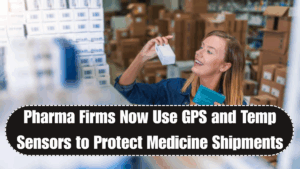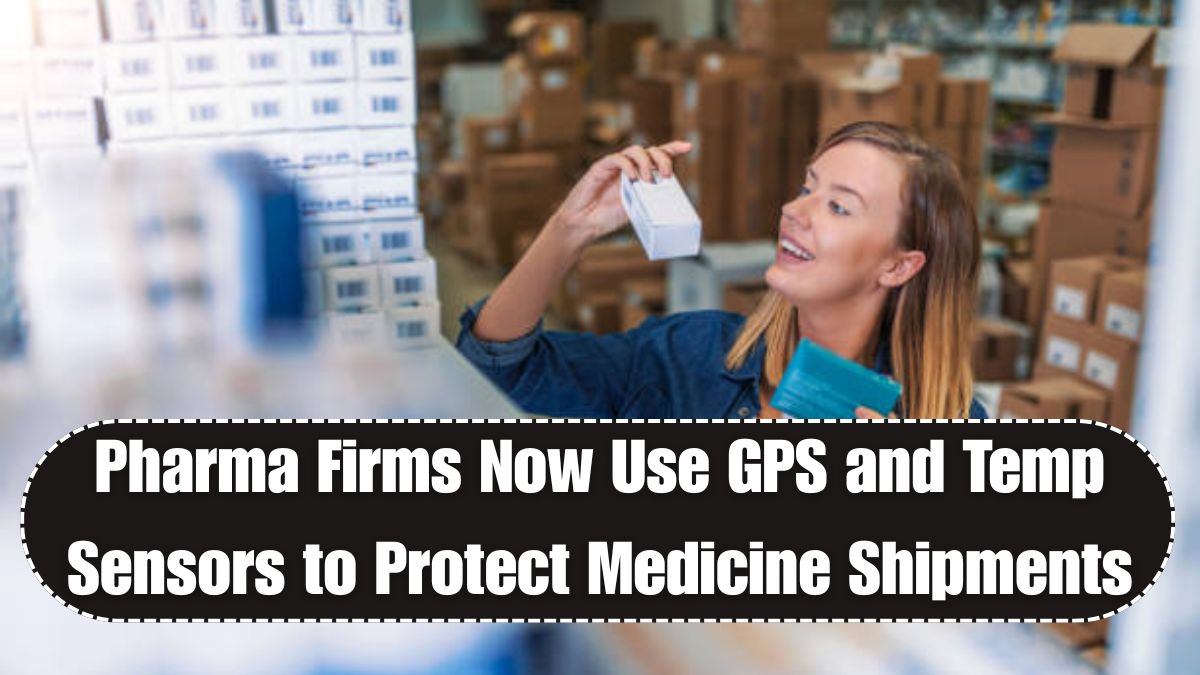In 2025, the pharmaceutical industry in India has taken a revolutionary step by implementing GPS logistics for pharma fleet operations. Leveraging GPS tracking and real-time temperature sensors, pharma companies are now ensuring that sensitive medicines and vaccines are delivered with full integrity from warehouse to doorstep.
This innovation comes as part of a broader digital transformation in pharma logistics, where delivery efficiency, safety, and precision are essential. With the rise in demand for temperature-controlled medicines, Indian pharmaceutical leaders are now embedding technology directly into their delivery systems to prevent spoilage, delays, and compliance issues.

Real-Time Monitoring to Avoid Medical Waste
The key advancement in GPS logistics for pharma fleet is the integration of live monitoring systems that track both vehicle location and internal cargo temperature. These temperature sensors provide minute-by-minute updates, ensuring that life-saving medications remain within strict thermal parameters throughout transit.
Here’s what the new smart monitoring includes:
-
GPS tracking for route optimization and delivery transparency
-
Remote temperature control alerts via IoT platforms
-
Emergency rerouting in case of cooling unit failure
-
Data logs for compliance with medical regulations
-
Driver alerts in case of temperature deviation
This combination of GPS monitoring and smart refrigeration systems gives logistics teams complete visibility into each shipment’s health status, boosting medical safety and reducing the risk of vaccine wastage.
Indian Pharma Embraces Smart Delivery Tech
Top Indian companies like Sun Pharma, Dr. Reddy’s, and Glenmark are among the early adopters of this smart delivery transformation. These companies have retrofitted their existing delivery vans and trucks with advanced temperature sensors and cloud-connected GPS devices to upgrade their cold chain systems.
Benefits realized by these companies include:
-
Up to 30% reduction in vaccine spoilage
-
Improved on-time delivery rates
-
Streamlined audits and compliance reporting
-
Enhanced trust among hospital and clinic customers
In 2025, pharma logistics has become not only about transportation—but about ensuring complete traceability and safety of medicines in real time.
Tech-Driven Safety for Rural and Urban Delivery
This advanced system is proving especially valuable for rural outreach programs where unpredictable roads, weather, and delays previously caused vaccine spoilage. By integrating GPS logistics for pharma fleet vehicles, companies now receive alerts before a problem becomes critical.
Additionally, in cities where speed and delivery timing are essential, route optimization features in GPS systems ensure the fastest and safest delivery paths. As a result, hospitals, diagnostic labs, and pharmacies receive critical supplies on time, and in perfect condition.
The medical safety framework is further strengthened by maintaining full transport history logs, which are now essential for regulatory inspections and export documentation.
The Future of Medical Logistics in India
By embracing GPS monitoring and smart temperature controls, Indian pharmaceutical companies have set a new gold standard in medical delivery. The days of relying solely on insulated boxes and human accuracy are over—2025 is the era of data-backed, precision-driven supply chains.
This tech-forward approach not only supports vaccine efficacy but also aligns with global best practices in medicine transport. As India increases its pharmaceutical exports and vaccine diplomacy, this infrastructure becomes essential for both local and international trust.
FAQs
What is GPS logistics for pharma fleet?
It refers to the use of GPS tracking and live temperature monitoring in delivery vans to ensure safe and timely medicine transport.
Why are temperature sensors important in pharma logistics?
They help maintain the right storage conditions for temperature-sensitive medicines and vaccines, reducing spoilage and ensuring efficacy.
Which companies are using this system in 2025?
Leading pharma firms like Sun Pharma, Glenmark, and Dr. Reddy’s have implemented GPS and temperature monitoring across their delivery fleets.
How does GPS monitoring improve medical safety?
It enables real-time visibility, route optimization, and immediate alerts for temperature deviations, ensuring the safety of all medical cargo.
Is this technology used for rural deliveries too?
Yes, GPS logistics is highly beneficial for both rural and urban deliveries, helping overcome infrastructure and route challenges.
Click here to know more.
